Israeli Airstrike Claims Lives Of Two IRGC Generals In Syria
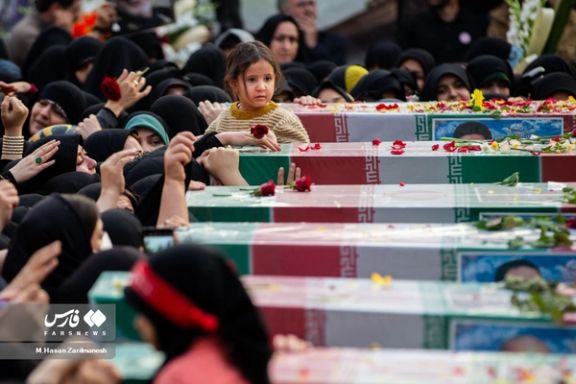
In the latest Israeli airstrike targeting Syria, Brigadier Generals Panah Taghizadeh and Mohammad-Ali Ataei (Shoorcheh) of the Islamic Revolutionary Guard Corps (IRGC) were killed.

In the latest Israeli airstrike targeting Syria, Brigadier Generals Panah Taghizadeh and Mohammad-Ali Ataei (Shoorcheh) of the Islamic Revolutionary Guard Corps (IRGC) were killed.
The IRGC confirmed their deaths, stating that the generals were on an "advisory" mission in Syria. The Guards' Sepah News website reported, "Mohammed Ali Ataei Shoorcheh and Panah Taghizadeh... were martyred by the Zionist usurper enemy while conducting an advisory mission in the Syrian Islamic resistance front," without providing further details.
Israeli airstrikes hit several areas on the outskirts of Damascus early Saturday, causing "material losses," according to Syrian state media. The strikes targeted the southern Damascus suburb of Sayyida Zeinab, where Hezbollah-affiliated forces operate. The Syrian Observatory for Human Rights reported two Syrian citizens and two foreigners killed, with five others wounded.
Israel has frequently conducted airstrikes in Syria since the civil war began in 2011, focusing on Iran-backed forces, Hezbollah fighters, and Syrian army positions. The recent surge in attacks aligns with the Israel-Hamas conflict that started in October.
The incident is expected to heighten tensions between Israel and Iran, a key supporter of the Palestinian group Hamas. Iran has warned of the conflict's potential spread to other regional areas. Israel remains concerned about Iran's military presence in Syria and is committed to preventing Iranian entrenchment along its northern border.
During the ongoing Israel-Hamas conflict, Israel has targeted Syria, impacting international airports in Damascus and Aleppo for over a month. Iran has played a significant role in supporting Syrian President Bashar al-Assad throughout the 12-year civil war, deploying fighters to tip the balance in Assad's favor. Despite Tehran maintaining a military advisory role, numerous Iranian Revolutionary Guard members have lost their lives in the Syrian conflict.
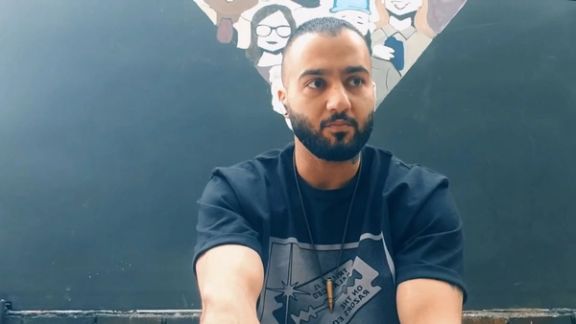
Ye-One Rhie, a German lawmaker and political sponsor of Iranian rapper Toomaj Salehi, has issued an urgent call for his release after his second arrest.
In a conversation with Iran International, Rhie expressed deep concern about Salehi's well-being, emphasizing the lack of information about his whereabouts.
Toomaj Salehi, 33, was apprehended by plainclothes individuals on a street in Babol, northern Iran, on Thursday. He was reportedly subjected to severe physical abuse during the arrest, including beatings with the butts of AK-47 rifles and pistols, as reported on his social media page.
Rhie underscored the Iranian regime's fear of Salehi's message, stating, “The fact that he was taken again shows the Iranian regime is very, very afraid of him and what kind of message he's sending to all those people who are unhappy, who are not satisfied with how the country is going, how Iran is developing.”
Salehi had previously spent over a year in prison, with 252 days in solitary confinement, before being released on bail on November 18th. Following his re-arrest, social media erupted with a trending campaign, garnering over 75,000 mentions of Toomaj Salehi on various platforms.
Rhie concluded by demanding answers from the Iranian authorities, stating, “I am very positive that Salehi is such a man that the Iranian regime will not be able to break him at all and not to break his spirits. I'm demanding answers as I wrote to the ambassador of the Islamic Republic of Iran in Berlin, to tell me where he is.”
Salehi gained prominence for his protest songs addressing social issues and government injustices in Iran. His initial arrest in October 2022 was part of a broader crackdown on political opponents of the regime. Rhie urged the dropping of all accusations, sentences, and the release of Salehi and other political prisoners, emphasizing the injustice of their detention.
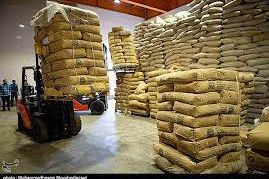
The head of Iran’s Inspection Organization has disclosed that a prominent tea importer has come under scrutiny for questionable financial practices.
The company, handling the majority of the country's tea imports, reportedly received a staggering $3.37 billion in foreign currency at discounted government rate for tea and machinery imports from 2019 to 2022. However, it has allegedly sold $1.4 billion of the currency on the free market at a higher rate.
Zabihollah Khodayian highlighted the company's alleged transgressions, emphasizing its violation of premium-grade tea orders. However, he did not disclose the name of the company.
“Despite registering a $14 per kilogram order for premium Darjeeling tea from India, the company purportedly imported significantly cheaper Kenyan tea and bought Iranian grade-two tea at a value of around $2 per kilogram,” added Khodayian.
The government, controlling the economy and foreign currencies allocates cheaper foreign currency to facilitate crucial imports.
The Central Bank of Iran operates the NIMA currency scheme to make imports more affordable and control inflation. The system allows exporters to sell foreign currency at a reduced rate and permits importers to purchase currency at the same lower rate to finance their transactions abroad.
However, the official government rate of around 370,000 rials to the dollar in the NIMA scheme contrasts sharply with the free market rate of about 510,000 rials. This disparity has led to corrupt practices, where well-connected entities exploit the lower rate, obtaining cheap dollars and diverting them for purposes other than intended imports.
The Iranian government, grappling with economic complexities exacerbated by sanctions, regularly intervenes in the currency market to stabilize the beleaguered rial. Despite these efforts, the challenges persist, and instances of currency misuse continue to pose serious concerns.

A hardline politician recently suggested that that an absolute ruler in Iran is not enough, “absolute obedience” is needed, referring to the Supreme Leader.
The statement comes after more questions have risen about how the parliament has become a rubber stamp and hardliners dominating the government get their power from Supreme Leader Ali Khamenei’s office. Consequently, questions also arise as to what the constitutional powers of the Supreme Leader are and do elections and elected offices mean anything, when he can dictate his will.
Hardline cleric Morteza Aqa-Tehrani, the chairman of the central council of ultraconservative Paydari Party recently quoted the party's founding father, Ayatollah Mohammad Taqi Mesbah-Yazdi as having called for the nation's absolute obedience to Supreme Leader Ali Khamenei.
Aqa-Tehrani quoted Mesbah as saying, "The absolute rule of the Supreme Leader is not enough as the theory of government under the Islamic Republic. The system also needs absolute obedience of the people to the supreme leader."
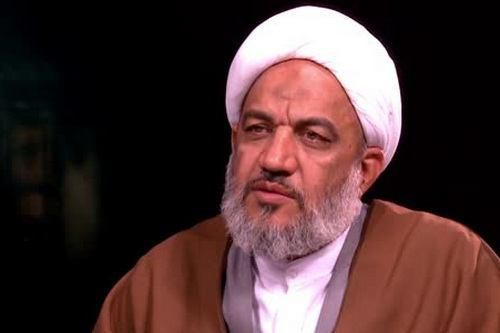
The statement effectively would render the legislative system in Iran meaningless. According to the ultraconservative party, Khamenei can make any decision, and the people will have no choice other than obeying what he decrees. What makes Aqa-Tehrani’s statement more dangerous is that his party is poised to gain absolute majority in the March parliamentary elections that are being heavily engineered to give a monopoly of power to hardliners.
Commentator Abbas Abdi writing in Tehran’s reformist daily Etemad on Saturday argued that those who speak about “absolute obedience” to the Supreme Leader, in fact are doing a disservice to him. A modern state cannot be governed on that basis because the world has changed in the past 200 years and now governing a country needs expertise in different fields, he stated. Those who insist on absolute obedience in fact leave the Supreme Leader in a lonely position, vulnerable to all things that can go wrong and make him a target for blame.
Mr. Khamenei has already entered the unenviable position of being seen as responsible for a once rich and promising developing country that is now on the verge of becoming a failed state. Anti-regime protests in recent years have demonstrated that increasingly many people have turned against Khamenei, seeing him as responsible for a failed state and an impediment to a better life.
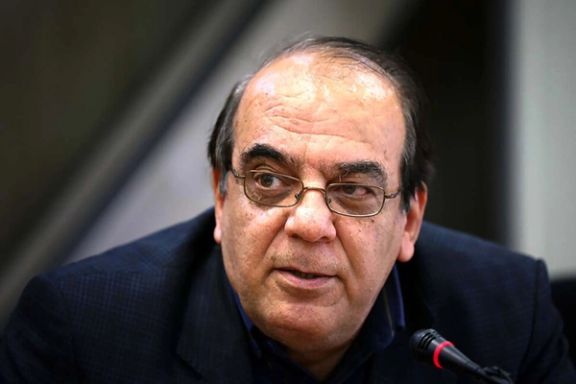
Iran’s economy, straddled with unsurmountable inefficiencies of nepotism and political control, has little hope of resuming development and progress. Sitting on the world’s second largest natural gas resources, Iran faces domestic shortages, let alone an ability to export.
Crude oil exports, limited by US sanctions, are not even enough to help bridge a 50-percent budget gap. The country needs $160 billion to overhaul and modernize its energy sector, according to oil minister Javad Owji, but its annual crude exports barely reach $22 billion. Iran resembles a football player who has lost track of the ball and no matter how fast he runs, it seems too late to catch up.
Iranians see this hopeless situation as the result of Khamenei’s 34-year rule, and his hardline loyalists resort to more praise and demands of full obedience, while many see his days numbered at the old age of 84.
Recently, former President Hassan Rouhani publicly referred to the inevitable, the death of the leader, and hinted at the need to look forward. This week, a senior cleric revealed that a small committee is looking into appointing a deputy leader. But the day after Khamenei’s eventual passing is what many whisper about. Who would replace him. Will there be a nasty power struggle, or even a “collective leadership” to replace the Supreme Leader? What will the Revolutionary Guard do? Will they push their own candidate, or they will start an internal power struggle?
Abdi referring to “absolute obedience” wrote, “I would like to say that those who make this statement are essentially pursuing their own agendas. By seemingly expressing support for the velayat-e faqih (Supreme Leader), they aim to advance their projects. Lacking intellectual courage and self-sufficiency, they seek to promote their plans through this statement.”
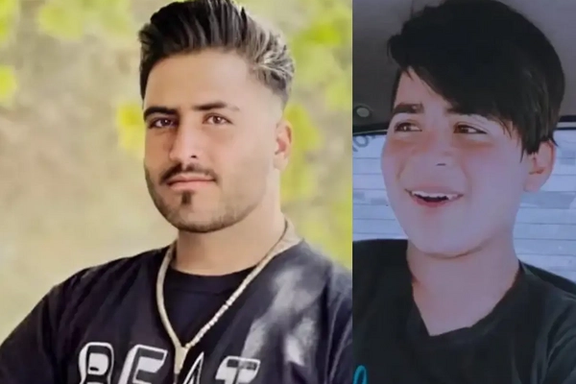
Reacting to reports of the execution of a young man and a young protester, the European Union has called on Iran to refrain from any future executions.
Peter Stano, lead spokesperson for foreign affairs and security policy of the European Union, stated on Friday, "There are credible reports that a minor, Hamidreza Azari, and a protester, Milad Zohrevand, were executed in Iran on November 24 and 23 respectively," emphasizing the European Union’s "firm and principled opposition to the use of capital punishment at all times and in all circumstances." Iran has hanged nearly 700 people this year alone.
Stano also underlined that as a party to the International Covenant on Civil and Political Rights and the Conventions on the Rights of the Child, the Islamic Republic is prohibited from imposing the death penalty for crimes committed under the age of 18.
Hamid Azari was hanged on Friday morning at the Central Prison of Sabzevar in the northwestern province of Khorasan-e Razavi for complicity in stabbing Hamidreza Aldaghi to death in a street fight in April.
Human Rights (IHR NGO), a Norway-based Iran Human Rights Organization, claims to have reliable evidence that Azari was only sixteen years and eight months old at the time and seventeen years and three months when he was hanged.
According to IHR NGO, the Islamic Republic has hanged at least 68 other child offenders since 2010.
Iranian authorities called the victim a “martyr” and claimed he was killed while carrying out his religious duty of calling on citizens to follow the Sharia and refrain from forbidden bahvior.
The victim's family, however, asserts that he got involved in the incident that led to his killing to protect a young girl being assaulted by the young boys, including Azari. They have denied any religious motivation or his association with the Basij militia or hardliner religious groups, as claimed by the authorities.
Stano’s statement also mentions Milad Zohrevand, a construction worker who was arrested during last year’s protests in Malayer in the western province of Hamedan and was hanged on November 23 on charges of killing Ali Nazari, a Revolutionary Guard.
Miladvand’s family and friends say he was only in the vicinity of the place Nazari was shot to death. Authorities have not offered any solid evidence of Miladvand’s involvement in the killing.
The young man who was tried and sentenced to death behind closed doors was never given access to a lawyer and his family were pressured by the authorities not to talk to the media about his case. He was hanged without having a chance to meet his family for a last time before his execution.
IHR NGO said on December 1 that the Islamic Republic has executed over 700 in 2023 including at least 176 since October 7 when the war in Gaza started.
IHR NGO urged the international community and especially European countries to “break their silence on the arbitrary execution of more than three people per day by the Islamic Republic.”
“The critical human rights situation in Iran, and the death penalty in particular, must not be compromised for political and regional considerations. The international community’s silence on executions is considered a green light by the Islamic Republic,” IHR NGO said.
Other prisoners, IHR NGO says, have often been hanged in groups of several in various prisons for political crimes, drug offences and murder.
On November 29, for instance, a group of seven prisoners were executed in Ghezelhesar Prison near Karaj. These included Ayub Karimi who was sentenced to death for moharebeh (enmity against God) and efsad-fil-arz (corruption on earth) charges. Two others were sentenced to death for drug-related charges while the remaining four had been sentenced to qisas (retribution-in-kind) for murder.
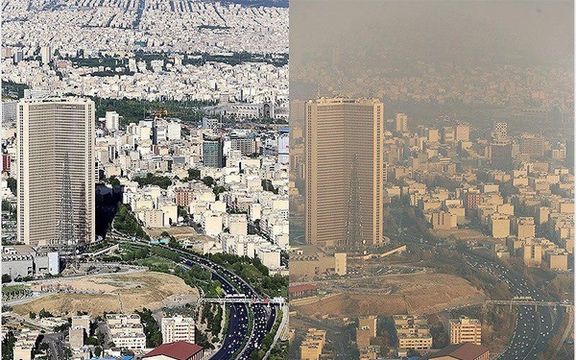
Amid reports about low-quality gasoline and a surge in air pollution across key industrial hubs in Iran, an official insisted that the low-quality fuel has no impact.
In an interview with the semi-official ISNA news agency, Jafar Salari-Nasab, the CEO of the National Company for the Distribution of Petroleum Products emphasized that “the distributed gasoline meets Euro specifications in terms of quality and octane level.” He highlighted that Euro-grade gasoline, known for its superior quality, is distributed in major cities such as Tehran.
The National Crisis Management Center recently issued a warning about escalating air pollution levels in industrial centers like Tehran, Karaj, Arak, Esfahan, and Tabriz, coupled with a decline in air quality.
Salari-Nasab's comments come in the wake of the Taliban government's standards office rejecting fuel tankers carrying Iranian gasoline, citing substandard quality. According to a recent announcement by the Taliban on November 29, 24 tankers carrying low-quality Iranian gasoline were returned through the Farah border crossing in the last two days. In total, 74 tankers have been sent back from Afghanistan in the past week.
Iran has been grappling with a significant gasoline shortage since last summer, prompting refineries to add substances to base gasoline. The harmful additives have led to the production of non-standard gasoline, contributing significantly to air pollution in the country.
A recent report by Etemad revealed that Tehran experienced only two clear days in the last year, with a simultaneous surge in emergency room visits by residents due to polluted air. Iran currently ranks as the sixth-highest greenhouse gas contributor globally, following China, the United States, India, Japan, and Russia.